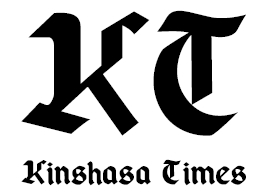The coronavirus pandemic that is raging around the world from its epicentre in Wuhan, China in December 2019 is causing a major global health impact. But not only that. The pandemic induces economic disruption, the impact of which will be felt in the long term after it has been defeated (hopefully as soon as possible). Africa and particularly the DRC will not be spared.
Below is my six-point analysis of the adverse effects of covid19 on the Congolese economy.
Drastic reduction of the mining revenues
China is the DRC’s leading economic partner. The Middle Kingdom alone absorbs more than 90% of Congolese copper and cobalt. This sector is the main provider of revenue to the Congolese budget (about 20% of the 2020 budget). However, the most optimistic forecasts predict economic growth of 2.9% in China by 2020, the lowest growth rate recorded by the world’s second largest economy since 1990. Simply put, China will buy/consume less of our cobalt and copper. The mining revenues will accordingly shrink, thus, inducing a deficit that could become structural for the Congolese economy. Our $11 billion budget, already halved, will be further reduced. Our meagre growth will also be reduced.
Risk of acute inflation
Two causes will induce acute inflation, beyond the 5% currently projected. On the one hand, the Congolese economy is extroverted: it produces what it does not consume and it consumes what it does not produce. The closure of borders imposed by the coronavirus is already disrupting import channels. As several imported goods become scarce, their prices will naturally rise. On the other hand, the budget deficit resulting from the drop in mining revenues could tempt the government to try to finance this deficit through advances from the Central Bank by turning the money plate. This will inflate the money supply in circulation without a counterpart in national production. The most economically vulnerable households, which make up the majority of the Congolese population, will be the first to bear the brunt.
Domestic debt growth
The coronavirus will force the Congolese government to resort to national economic operators for the supply of certain goods and/or services, as international procurement could be difficult in the context of the pandemic. With the reduction in budget revenues, there is a risk that invoices from these suppliers may not be paid immediately. This will inflate a public debt whose repayment rate has been only 14% in 2019. The advances from the BCC are also part of the domestic debt, and since the BCC will certainly be required to finance the deficit, the domestic debt will only increase. If you are a local supplier, be careful to deal with the government in this context.
Loss of entrepreneurial dynamism
The Congolese business climate, which has remained deleterious for several years (according to the country’s Doing Business ranking), is set to deteriorate with a drastic drop in demand/consumption. Many of the Congolese SMEs, most of which are operating on a fragile cash flow, are in danger of closing down. Definitely for some of them.
Near-suicide of the informal sector
Employer of more than 77% of Congolese and provider of income to more than 90% of households in the DRC, the informal sector of the Congolese economy is the backbone of the country’s survival. However, the functioning of this sector is fundamentally social and dictated by human mobility (urban and rural). The social distancing imposed by the coronavirus virus, if strictly applied, will almost condemn this sector to suicide. And with it the households that depend on it. The city of Kinshasa is living proof of a city that lives in the present.
Soaring unemployment
With the drop in consumption, the possible bankruptcy of several SMEs, the dismissal of several employees on technical leave and possibly permanent leave, the current Congolese unemployment rate of 70% will skyrocket. The result will be severe poverty among an already poor population.


